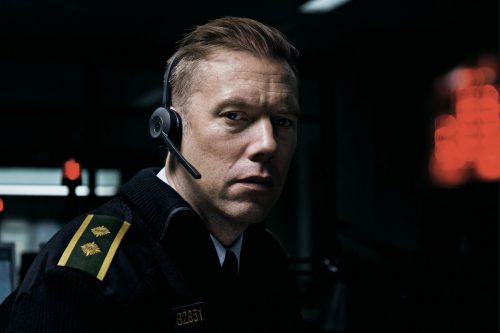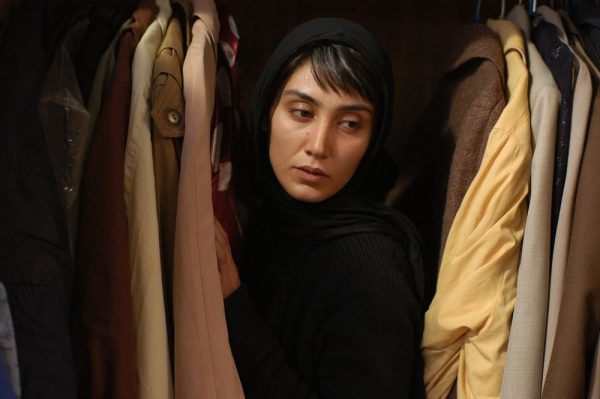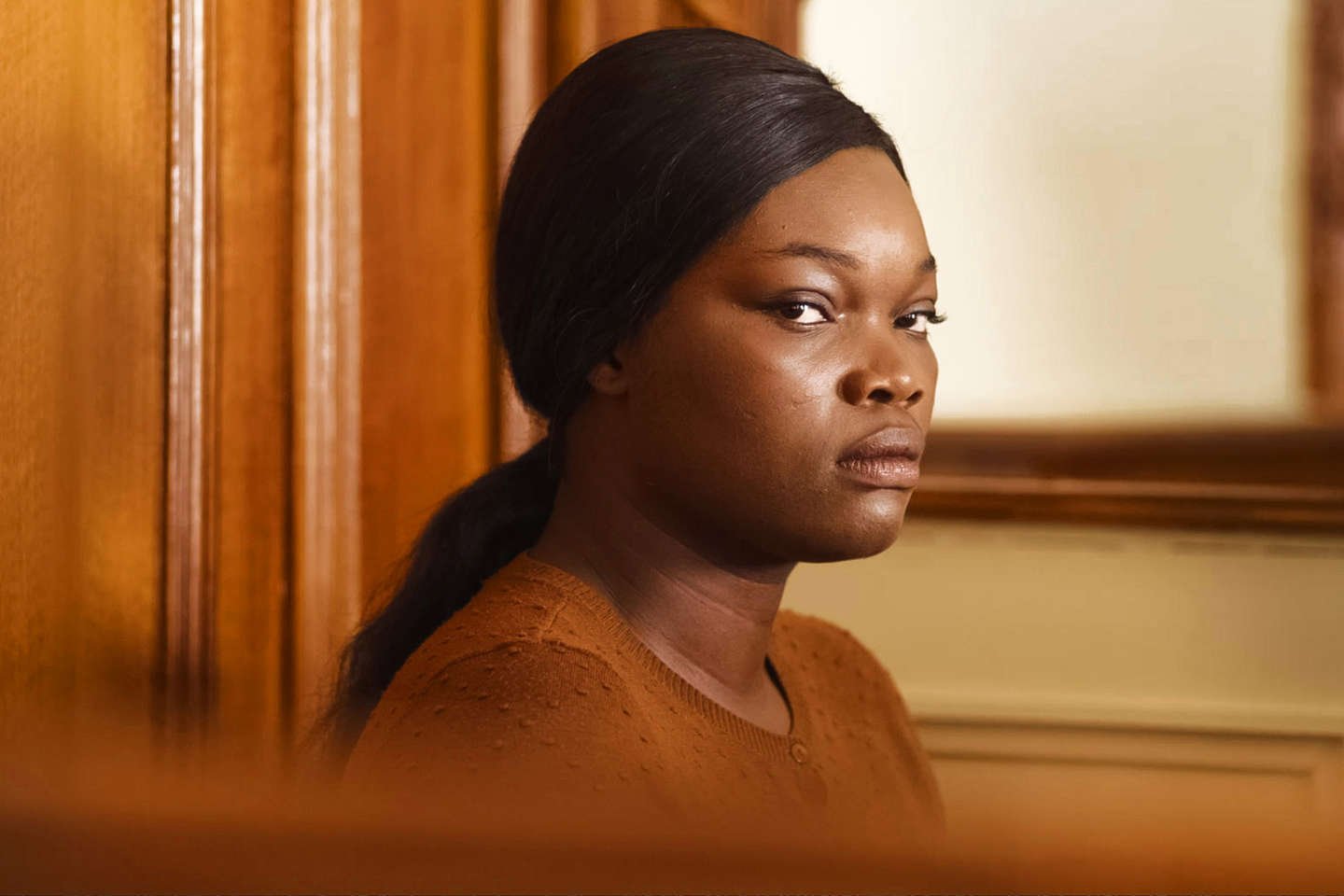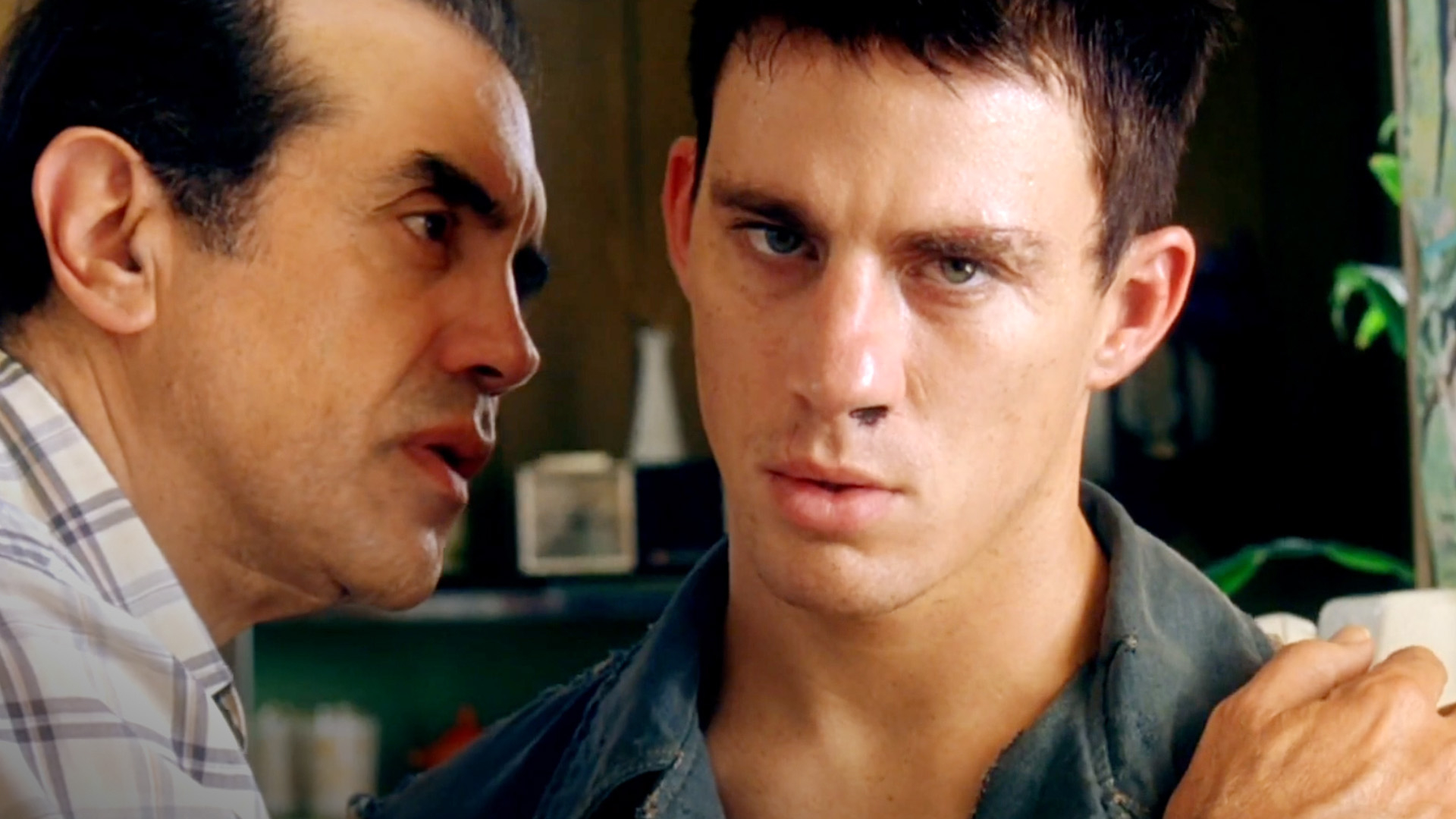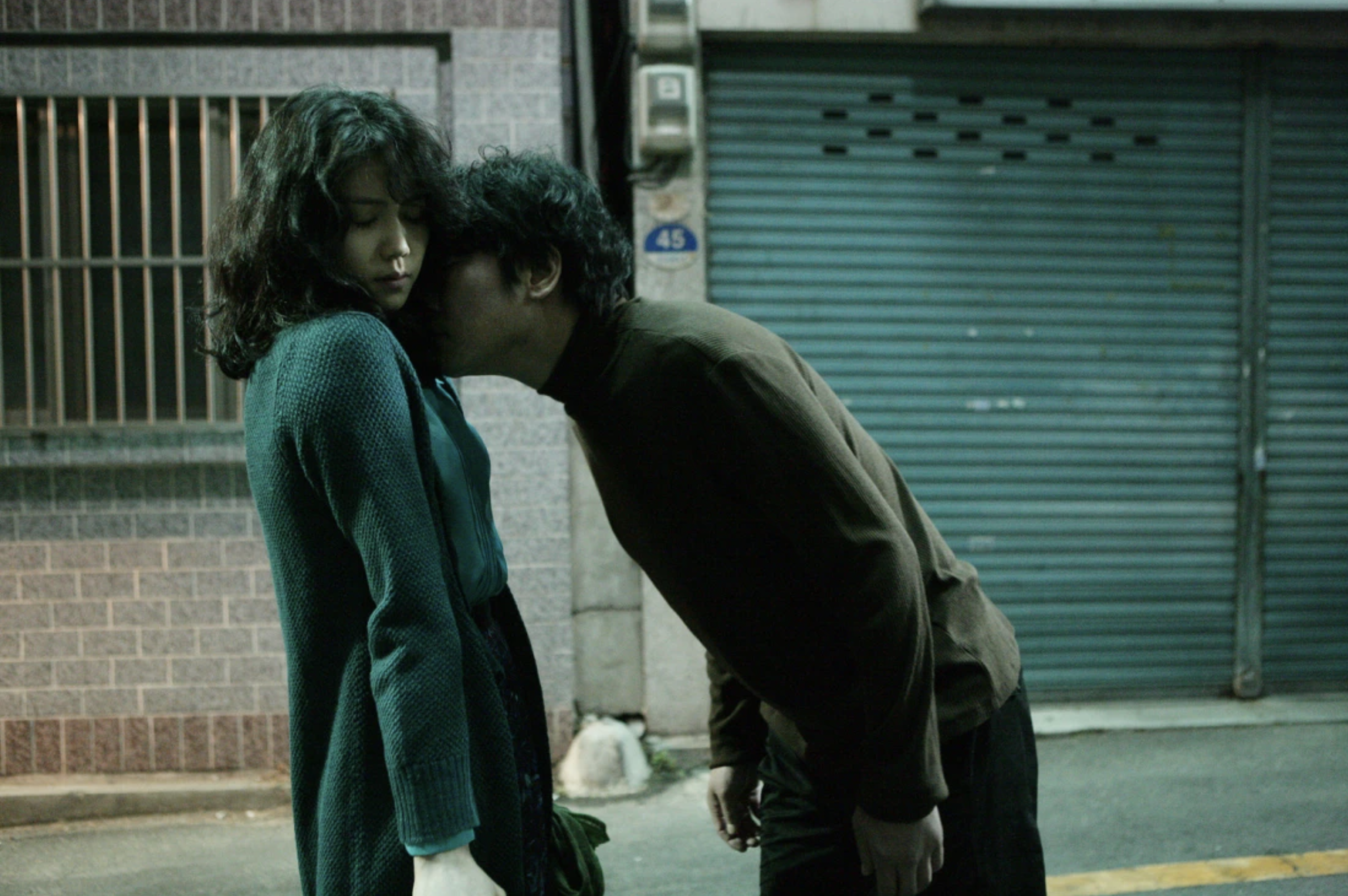
70 Best Anxiety-Inducing Movies
April 8, 2025
Share:
It seems counterintuitive, but there’s something cathartic about watching movies that keep you on the edge of your seat. Anxiety builds up as you follow characters do one infuriating thing after another—and when the credits finally roll, you find yourself gasping in relief like a tight valve of pressure inside you was released.
To that end, we’ve compiled the best anxiety-inducing movies you can watch right now. Whether you’re looking for a challenging slow burn like Mass, an intense drama like Whiplash, an intricate heist like Bad Genius, or an erotic thriller like Thirst, get ready to see the whites on your knuckles as you go through our list of films below.
Read also:
21. The Sea Inside (2004)
Genres
Director
Actors
Moods
There are movies that leave you matured after you finished watching. You mature because you are forced to walk in someone’s shoes and confront yourself with issues that you are not affected by. The Sea Inside is one of those movies – and won an Academy Award and a Golden Globe for it. Directed by Alejandro Amenábar, who you might know as the director of The Others, it tells the true story of Ramón Sampedro’s decade-long fight for the right to end his own life. After he became quadriplegic after a diving accident, he was confined to the same bed in the same room for 26 years, except when he visited the hospital. Not an easy subject to say the least but Amenábar helps the fascinating story along with stylish directing, while Javier Bardem delivers a stellar performance to go with it. Thanks also to Ramón Sampedro’s sunny real-life nature, this heart-wrenching watch also has plenty of uplifting moments.
22. The Guilty (2018)
Genres
Director
Actors
Moods
Before you press play on this movie, we highly recommend you take a few very deep breaths. This 2018 thriller is wound so tight, you will need the extra oxygen to get through it without fainting. In his directorial debut, Swedish-danish filmmaker Gustav Möller uses very little in terms of resources to create this breath-taking atmosphere. While The Guilty feels like it was made on a $100 million budget, all it physically brings to the table is one man in a dark room. It plays with our imagination instead of blinding it with special effects. Similarly, the plot is also short and sweet: a police officer is temporarily sent to do emergency dispatch, when he receives a call that turns an ordinary shift into a hell ride. This is all we are going to give away before you’ve completed your breathing exercises. The movie’s minimalist approach is held together by great acting from Jakob Cedergre, a screenplay to match, and incredible sound design. A real white-knuckle ride.
23. Fireworks Wednesday (2007)
Genres
Director
Actors
Moods
There are two auteur directors that we recommend more than anyone else on this site. One is Hirokazu Koreeda, the Japanese master of intricate drama, the other is Asghar Farhadi. Mr. Farhadi is an Oscar-winning, Iranian filmmaker and one of the most recognisable directors out there. His third film, Fireworks Wednesdays, paved the way for him to become one of the hidden champions of international cinema. As is often the case with the stories he tells, the film portrays the life of a couple in turmoil, Mozhdeh and Morteza Samiei, played by Hedye Tehrani and Hamid Farokhnezhad. She suspects him of cheating on her with their neighbor, a beautician, and sends the maid, a soon-to-be bride named Roohi, to the salon to spy on her. When Roohi takes matters in her own hands, the couple can’t help but watch things spiraling out of control. This happens against the backdrop of Chaharshanbe Suri, an Iranian holiday celebrated with fireworks on the Wednesday before the Iranian New Year, hence the title. Will it make for an explosive ending? From what you have heard so far, this could easily be melodramatic, but Fahradi is too good. He’s very, very good.
24. System Crasher (2019)
Genres
Director
Actors
Moods
While quite testing for viewers, this is one of the craziest, most high-energy movies you’ll ever watch. In this incredible German drama, child actor Helena Zengel plays Bernadette aka Benni, a traumatized 9-year-old child who tends to lash out and has been repeatedly suspended from every school she went to. Benni is a so-called “Systemsprenger” (which is the original German title). A system crasher is a child so uncontrollable and aggressive that, over time, she falls through the grid of special schools, foster care, and social work facilities. Despite the best efforts of her designated social worker, Frau Bafané, played by Gabriela Maria Schmeide, she is turned down by everyone, testing the patience of her surroundings, wherever she goes. A trip with Micha (Albrecht Schuch), a tough boxer and anger-management trainer, turns out to be the last resort. Directed by Nora Fingscheidt, System Crasher is intense, punky, and wild with an almost eerie sense of authenticity. Its devastating effect is helped along by its unique, hyperactive camerawork. Much like the social workers themselves, you might have a hard time keeping professional distance to all this. This intense drama will stay with you for a long time.
25. Saint Omer (2022)
Genres
Director
Actors
Moods
Nothing about Saint Omer is easy. A female Senegalese migrant (Guslagie Malanga) is put to trial for committing infanticide, but throughout the film, it becomes clear how much of a victim she is too, of an uncaring and deeply prejudiced society. “What drove her to madness?” Her attorney asks at one point. We’re not sure. We’re not necessarily asked to side with her, nor answer the many hard-hitting questions brought up in the film, but we sit with the uneasiness of it all and, in that silence, confront our ideas about motherhood, womanhood, personhood.
This confusion is what makes the film so compelling. Despite the court’s best efforts, Laurence isn’t meant to be understood. She’s meant to be an example of the ever-ambiguous, forever-complicated, always-hurt person. It’s human nature after all to be this complex and messed up. The film shows us that the best that we can do in situations like this is to listen, understand, and as our protagonist Rama (Kayije Kagame) does, make peace with the noise.
26. The Zone of Interest (2023)
Genres
Director
Actors
Moods
How do you make a film about the Holocaust feel new? How do you make the terrors feel fresh, like it was just in the news, without sounding redundant or without giving into the sensationalized and emotionally manipulative? For Director Jonathan Glazer, the answer lies in not what you show but what you don’t show. The Zone of Interest is shot from the point of view of Nazi Officer Rudolf Höss (Christian Friedel) and his wife Hedwig (Sandra Hüller), who live a dreamy life right next to the infamous Auschwitz death camp. Glazer frames them plainly and without flourish as they ignore (or, arguably, revel in) the glow of burning bodies, the howls of pain, and the billows of smoke coming from the torture chamber a wall away. It’s a powerful, nauseating contrast that turns the question from “How can they do this?” to “Who among us is committing the same things right now?” Who among us is casting a blind eye to the atrocities and genocide being committed at this very moment to our neighbors? The film, which is also a technical feat in terms of the way it’s shot (the crew and cameras remained hidden so that the actors were free to roam, as if in a play) is chilling and thought-provoking, and it will unnerve you for days on end.
27. Silenced (2011)
Genres
Director
Actors
Moods
Abuse is bad and should be reported, full stop. But it’s not so easy to do so, when abusers stay in positions of power, and the people who are assigned to keep them in check are cowardly against them. Silenced depicts true crime novel The Crucible, which in turn, is based on a real life case of the Gwangju Inhwa School. Through the perspective of a new art teacher, Silenced systematically outlines how difficult it is to deliver justice, from the way the school administration bribed police and the education department, to the way the court didn’t even think to hire a deaf interpreter. It’s a horrific watch, but the intensity of the depiction was needed, given that this film’s release pushed South Korea’s government to change their laws and the actual school shut down within the same year.
28. Whiplash (2014)
Genres
Director
Actors
Moods
Miles Teller plays Andrew Nieman, an ambitious young jazz drummer striving for greatness, who is edged towards breaking point by the sadism of his teacher and conductor, Terence Fletcher, played expertly by J.K. Simmons. Fletcher insults him, pressures him, and makes him cry in front of all his peers. Directed by Damien Chazelle, who was one of the youngest people to receive a Golden Globe and an Academy Award for the powerful La La Land, the aptly titled Whiplash poses some intense questions about artistry and ambition. Will Andrew survive? Will it lift him to a higher artistic level? Can his tormentor be appeased through accomplishment? It’s almost impossible to single out the best part of this film, considering the flawless performances, masterful script, and meticulously crafted soundtrack. Cherishing the existential artist without giving easy answers, Whiplash is an inspiring watch.
29. A Guide to Recognizing Your Saints (2006)
Genres
Director
Actors
Moods
Not only is this multi-award-winning drama seriously star-studded, Robert Downey Jr., Rosario Dawson, Channing Tatum, and Shia LaBeouf also deliver superb performances. With two Sundance Awards and many other nominations in its pocket, A Guide to Recognizing Your Saints is based on the eponymous memoir by author, director, and musician, Dito Montiel, who recalls his violent childhood on the mean streets of Queens in the 1980s (LaBeouf plays the young Dito), as he visits his ailing father after 15 years away in Los Angeles (Downey Jr. plays present-day Dito). It is also real-life Dito’s directorial debut, recalling the loose, improvisational style of 70s cinema a’la Scorcese. The powerful plot is told through flashbacks and fourth-wall bending monologues, while the eccentric directing style makes for a raw and immediate experience. The energy of this coming-of-age drama is off the charts!
30. Thirst (2009)
Genres
Director
Actors
Moods
A thirst for love, a thirst for recognition, a thirst for sympathy, a thirst for meaning, a thirst for life, and a thirst for blood. Director Park Chan-wook and actor Song Kang-ho, two of the biggest names in South Korean cinema, join forces for the first time in a modern take on the supernatural. In present day South Korea, Catholic priest Sang-hyun (Song) volunteers himself as a human experiment during the formulation of a vaccine against a deadly virus. When the experiment fails and he is thought to be dead, he resurrects as a conflicted vampire, one whose moral code continually goes against his intrinsic desires. Along with Song and long-time collaborator cinematographer Chung Chung-hoon, Park creates a riveting atmosphere that is both very scary and sad. By blending elements of horror and drama, he also achieves putting a fresh and unique spin on the time-honored vampire film.
Comments
Add a comment
Ready to cut the cord?
Here are the 12 cheapest Live TV streaming services for cord-cutting.
More lists
Lists on how to save money by cutting the cord.
Curated by humans, not algorithms.
© 2025 A Good Movie to Watch. Altona Studio, LLC, all rights reserved.

